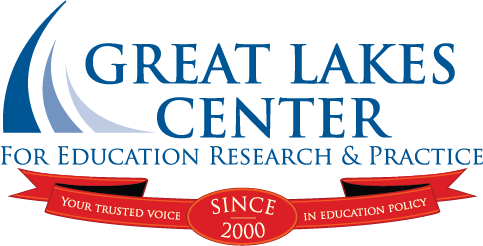
Think Twice Weekly Report
SEPTEMBER 1, 2023 - SEPTEMBER 7, 2023
The Think Twice Weekly Report compiles public education-related policy reports, research and articles of interest to policymakers, educators and stakeholders. This list is not exhaustive but is meant to highlight recent reports that may be used to support or undermine the work of our subscribers in supporting public schools. We encourage you to take a moment to scan these reports and determine if they may be used by policy makers to assist or erode your mission.
 Policy Reports
Policy Reports
Discipline Policy / School Finance and Funding
Source: Urban Institute
Date: 9/8/2023
Contextualizing the Push for More School Resource Officer Funding
With shootings becoming more frequent on and near school grounds across the US, members of Congress have proposed bills that would increase funding for school resource officers (SROs), or police officers stationed in school settings. Despite these calls to increase federal funding, there is little understanding of how much money is already being spent on SROs. Without a clearer idea of the existing landscape, it is difficult to understand the significance and potential effects of these policies.
Homeschooling / School Choice
Source: Cato Institute
Date: 9/5/2023
School Choice Programs Need a Firewall for Homeschoolers
As school choice programs continue to expand and spread, it’s important for homeschoolers to be engaged and for policymakers to listen to their concerns. With careful design, education savings accounts can help new families begin their home education journey while protecting those who want to stay independent of the government.
Student Achievement
Source:
CRPE
Date: 9/7/2023
Beyond test scores: Broader academic consequences of the Covid-19 pandemic on American students
Recent state and national achievement exam results, as well as academic progress reports, have underscored how the Covid-19 pandemic and related school closures had a large, negative impact on students’ reading and math development. But there has been less research conducted on how the pandemic affected other academic measures beyond standardized testing, such as attendance, engagement in school, student retention, course failure rates, degree completion, and postsecondary enrollment. These measures are important because they provide insight into students’ overall wellbeing, and they can affect students’ future success in college and/or work. This report reviewed the best available evidence to understand how the pandemic affected non-tested academic areas, and it offers recommendations for shaping a policy response.
Teacher Employment and Retention
Source: Pioneer Institute
Date: 9/7/2023
Engineering a Solution: Elevating STEM Teacher Quality
The United States has been cultivating STEM talent for decades with great success, but that robust talent pipeline is threatened by a growing STEM teacher shortage. Left unaddressed, that shortage could curtail employment in STEM professions and the many related careers that increasingly require some degree of scientific and technological literacy. While the STEM teacher shortage is a national problem, the effects are likely to be felt more acutely in a state such as Massachusetts with a high concentration of STEM jobs. This paper provides an overview of the causes of the STEM teacher shortage and offers three recommendations to address it.
 Reports Reviewed
Reports Reviewed
GLC seeks to ensure that policy briefs impacting education reform are based on sound, credible academic research. Below are reviews conducted with GLC support.
As a Matter of Fact: National Charter School Study III 2023
Source: Center for Research on Education Outcomes (CREDO)
Reviewed by: Joseph J. Ferrare University of Washington Bothell
In a recent report, the Center for Research on Education Outcomes (CREDO) examined charter school students' year-to-year test score growth over four years, and across 31 states. The report shows very small differences favoring charter schools and has been repeatedly trumpeted by charter school advocates as having policy significance-as weighing in favor of charter school expansion.
A review reveals, however, how the report's main findings fail to meet the minimum baseline experts consider to be meaningful. In fact, CREDO itself has labeled these small differences as "meaningless" and "small" -back when they found charter schools to be on the losing end of those differences.
 What We're Reading
What We're Reading
Research and articles that we want to highlight for subscribers as potential resources:
What Teacher-Preparation Enrollment Looks Like, in Charts
By: Madeline Will, EdWeek
How many people are pursuing careers as teachers? A new analysis looks at nearly 15 years of teacher-preparation program enrollment data to find out.
Whole Child Policy Toolkit
By: WholeChildPolicy.org
This toolkit is designed to give state policymakers and education leaders a set of strategies, tools, and resources to advance whole child policy and systems change.
Teacher shortages in the United States
By: TeacherShortages.com
A systematic examination of reports of teacher vacancy and shortages
Public Schools Rely on Underpaid Female Labor. It’s Not Sustainable
By: Alyson Klein, EdWeek
The labor market for women has changed in the last half century. Have schools? It’s hard to imagine a profession with a more vital mission. But when it comes to other important aspects of a job-pay, working conditions, opportunities for advancement-school districts are still operating largely as if the labor market for women hasn’t changed in the last half century.
Rising Absenteeism Since Onset of Pandemic Associated with NAEP 2022 Score Declines
By: NAEPPLUS+
Since releasing the 2022 results from the National Assessment of Educational Progress (NAEP), the National Center for Education Statistics (NCES) has continued to examine relationships between performance and opportunities to learn. One important contextual factor is school attendance.
